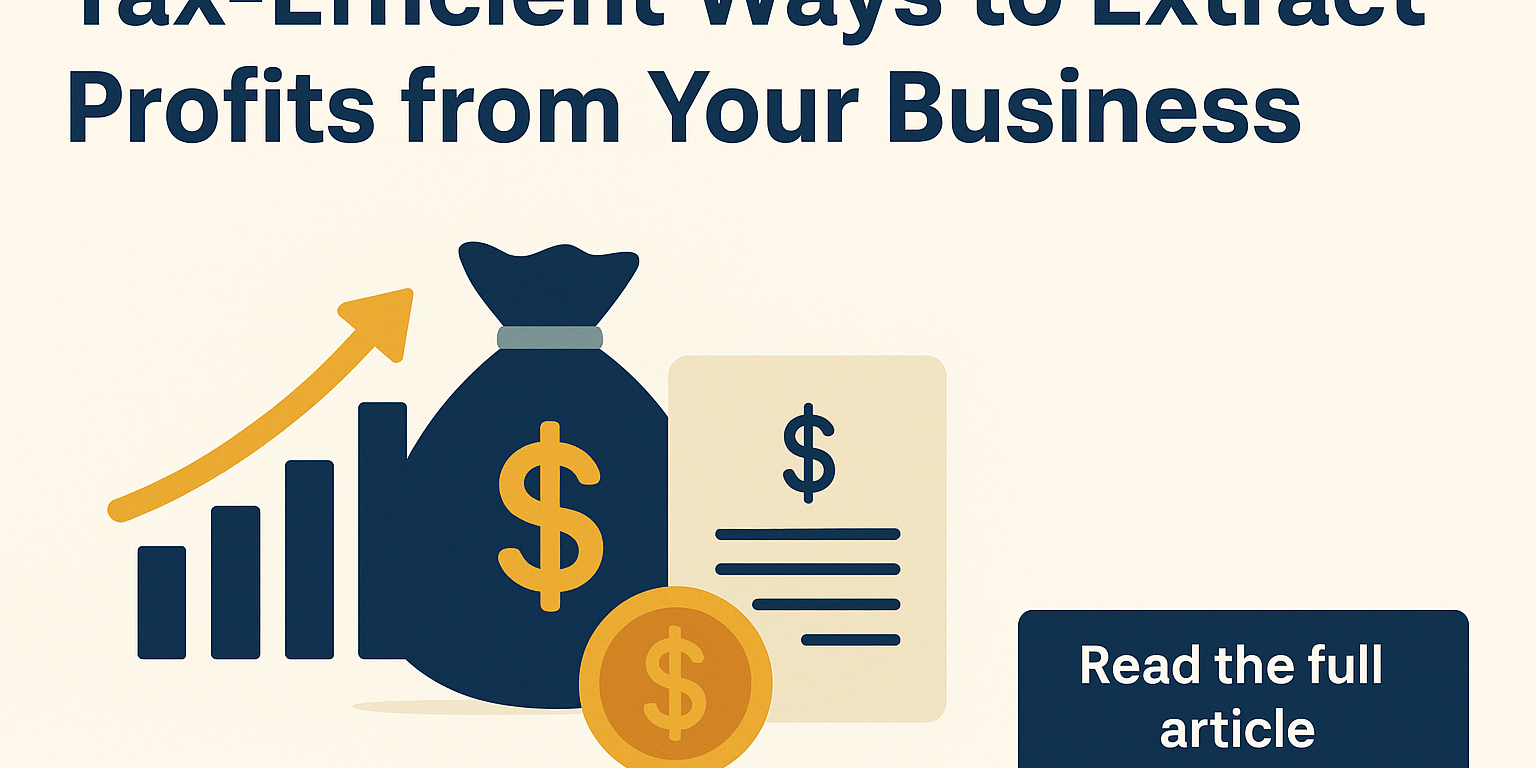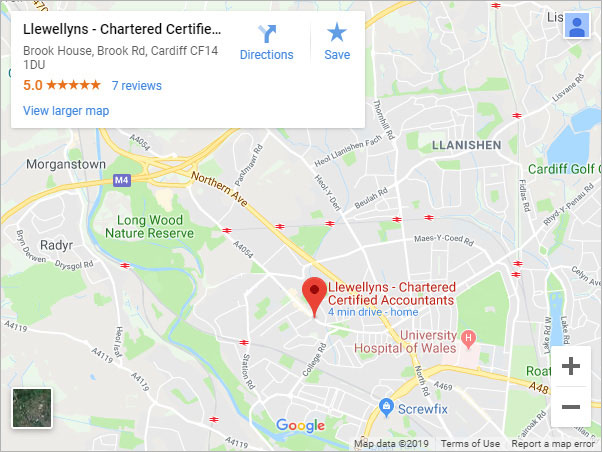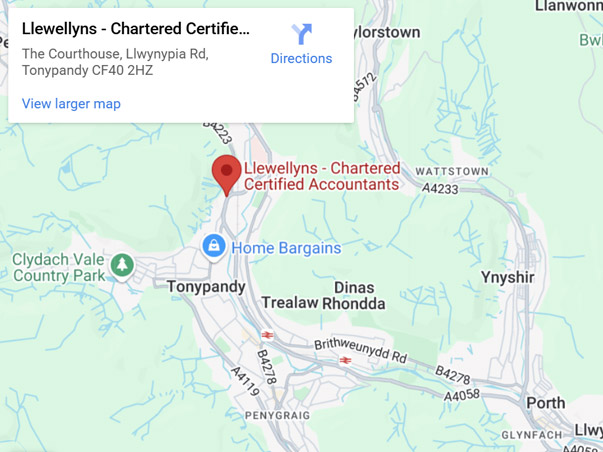💼 Tax-Efficient Ways to Extract Profits from Your Business
As a business owner, you’ve worked hard to grow your company — but when it comes to taking money out, the big question is: what’s the most tax-efficient way to do it?
Whether you’re a director of a limited company or a small business owner, it’s important to plan carefully so you can minimise tax, maximise personal income, and keep your business financially healthy.
Here’s a guide to the main options available 👇
💷 Salary vs. Dividends
One of the most common strategies for directors is to pay a small salary (often at or just above the National Insurance threshold) and take the rest of your income as dividends.
✅ Salary
Counts towards qualifying years for your State Pension
Can reduce Corporation Tax as it’s a business expense
May keep you eligible for benefits (e.g. maternity pay)
✅ Dividends
Not a business expense (so no Corporation Tax deduction)
But taxed at lower rates than salary (with a £500 tax-free dividend allowance for 2025/26)
Must be paid out of post-tax profits
⚖️ The right balance depends on your business profits, personal income level, and other allowances.
🏦 Pension Contributions
Making contributions into your pension through the company is one of the most tax-efficient ways to extract profit.
Employer pension contributions are treated as a business expense, reducing Corporation Tax.
No Income Tax or National Insurance to pay.
Boosts your long-term retirement planning while keeping money out of HMRC’s pocket.
Just keep in mind the Annual Allowance (£60,000 for 2025/26, or lower if tapering applies).
📝 Director’s Loans
If you’ve put money into the company, you can take it back via a Director’s Loan Account.
Withdrawals of your original loan are tax-free.
But if you borrow money from the company (rather than repaying your own funds), there are tax rules to watch out for:
Loans over £10,000 may be treated as a benefit in kind
If not repaid within 9 months of year-end, HMRC charges an additional Corporation Tax (S455 tax).
🏠 Other Options
Benefits in kind: Company cars, phones, or health insurance may work in some cases, but they often carry a tax/NIC charge.
Rental income: If you personally own the building the business uses, charging rent can be a tax-efficient strategy.
📊 Balancing Business and Personal Goals
It’s not just about tax savings — you need to think about:
Your cash flow needs
Keeping enough profit in the business for growth
Protecting your personal allowances
Planning ahead for Inheritance Tax or future sales
✅ Final Thoughts
There’s no one-size-fits-all answer when it comes to extracting profits. The best strategy depends on your business structure, profit levels, and personal financial goals.
💡 A blend of salary, dividends, and pension contributions is often the most efficient — but careful planning is key.
If you’d like us to review your current approach and find ways to reduce your tax bill safely, get in touch.





